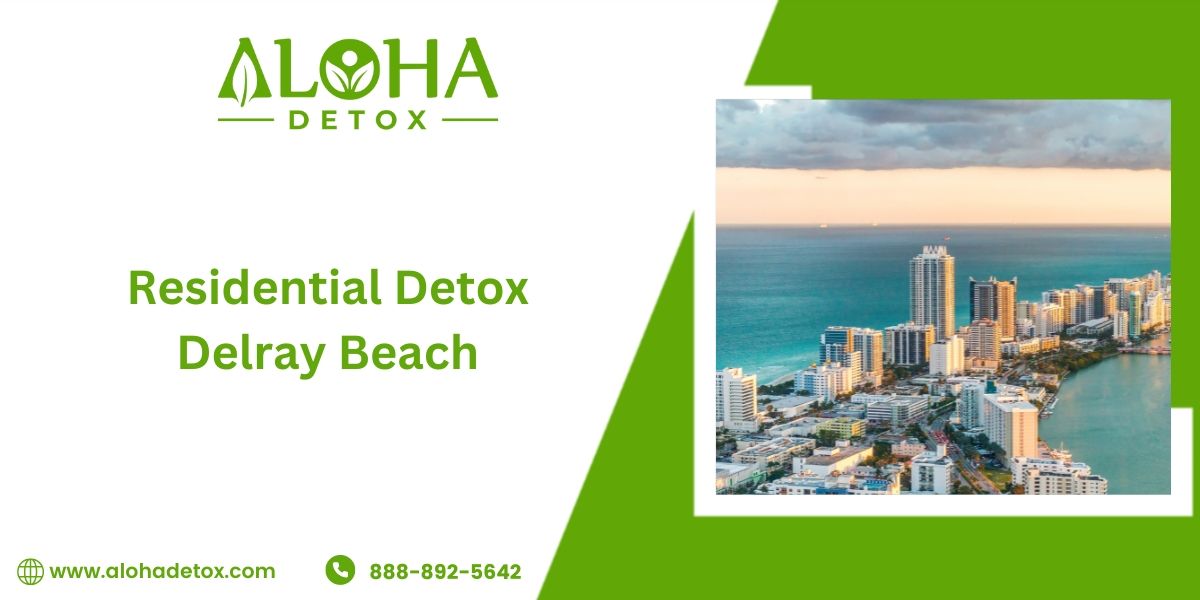
Nurturing Recovery: The Vital Role of Psychological Support in Residential Detox
There cannot be overemphasized the need for psychological support in a Residential Detox Delray Beach center while starting a recovery process. A detox is the first stage of treatment because it’s an initial step toward recovering from addiction. It means letting the body remove all drug residue and, at the same time, trying to reduce withdrawal symptoms. It is essential to note that physicality only represents one aspect of rehabilitation as a whole. Psychological help is necessary during this period to achieve long-term success and preserve health. This blog highlights why these kinds of residential detox facilities are important in terms of psychiatric support systems and how they assist people on their way to sobriety.
The Importance of Psychological Support in Residential Detox Delray Beach
The physical aspects of detoxification are often emphasized. Yet, the psychological implications that go along with it are enormous and can be a deciding factor in one’s ability to remain clean and sober. Not only does withdrawal have an impact on one’s body, but it also affects mental well-being, with anxiety, depression, and cravings being some of its manifestations. It is at this point where psychological support systems play, laying a platform for individuals to rebuild their lives from scratch.
Types of Psychological Support in Residential Detox Delray Beach
- Individual Therapy
One-on-one sessions with a therapist are a cornerstone of psychological support in Residential Detox Delray Beach facilities. These sessions create an environment for individuals to explore the root causes of their drug addiction, deal with any comorbid mental disorders, and learn how to deal with cravings and emotional problems.
- Group Therapy
Another essential aspect of psychological support is group therapy. It allows people undergoing similar struggles to share their experiences. This ensures that there is a sense of unity among them, which is very important when it comes to emotional healing. During group therapy, patients also get introduced to mutual aid and resources that can be handy during and after detoxification.
- Family Therapy
Addiction affects not only the individual but also their relatives and close friends. Therefore, family therapy attempts to mend these relationships and improve communication among members. They help family members understand the nature of addiction and how they can support their loved one’s recovery journey.
- Holistic Therapies
There are many other holistic therapies in most residential detox centers, including yoga, meditation, and art therapy. These techniques reduce stress levels, thereby enhancing psychological well-being by improving mood and helping victims bond with themselves on deeper levels.
Aftercare and Ongoing Support
The detoxification process is only the first step on the journey to recovery. The aftercare planning that is included in a complete Residential Detox Delray Beach program will make sure that patients continue to receive the necessary psychological assistance even after they have left the facility. As part of this process, you may be provided with options that offer continuous help, such as support groups, outpatient therapy, and others.
Conclusion
When it comes to people in Delray Beach who are looking for a way to overcome addiction, Aloha Detox stands out as a hopeful glimmer. Using an all-encompassing strategy that incorporates strong psychological support systems, Aloha Detox equips people with the resources and equipment they require to have a successful recovery. Because of the facility’s dedication to providing specialized Residential Detox Delray Beach treatment, as well as its supportive atmosphere and extensive selection of therapy alternatives, it is a good option for anyone prepared to start the journey toward recovery. Keep in mind that the road to recovery should not be traveled alone and that with the correct support, it is possible to make long-lasting changes.
